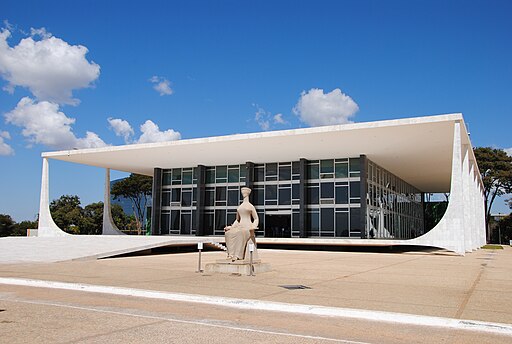Abdullah Bozkurt/Stockholm
When Brazilian Supreme Court (Supremo Tribunal Federal, STF) Justice Flávio Dino revoked the detention of Turkish-Brazilian national Mustafa Göktepe on May 8, 2025, he did more than free a man. He signaled, once again, that Brazil’s highest court would not bend to Ankara’s campaign of branding political opponents as terrorists and pursuing them through blatant abuse of judicial mechanisms.
Göktepe, who has lived in Brazil for more than two decades and was a naturalized citizen, was falsely accused by Turkey of terrorism solely because of his affiliation with the Gülen movement, a global civil society network inspired by the late Turkish Muslim scholar Fethullah Gülen, who passed away in the United States last year.
He is the president of the Instituto pelo Diálogo Intercultural (intercultural dialogue institute, IDI), taught at the University of São Paulo (USP), the Pontifícia Universidade Católica de São Paulo (PUC-SP) and the University of Brasília (UnB).
Because the movement has been fiercely critical of the government of President Recep Tayyip Erdogan — particularly on issues such as pervasive corruption and Ankara’s complicity in supporting radical jihadist groups — it was falsely designated as the Fethullahist Terrorist Organization (FETÖ) and subjected to an unprecedented crackdown in Turkey.
That campaign has also been exported abroad, with Turkey abusing international legal mechanisms to harass volunteers associated with the movement by filing extradition requests in dozens of foreign jurisdictions. Göktepe became one of the many targets of this vicious campaign by the Erdogan government, which rules Turkey with an iron grip in a system where neither the rule of law nor fair trial guarantees exist.
It was not the first time Brazil had been asked to act as an executioner in Turkey’s political witch hunt. Two earlier cases — those of Turkish businessmen Ali Sipahi in 2019 and Yakup Sağar in 2022 — followed the same script: fabricated terrorism charges, retroactive legal claims and no credible evidence beyond Ankara’s assertions. Each time, the STF refused, citing constitutional safeguards, the explicitly political nature of the accusations and the absence of judicial independence in Turkey.
The ruling by the Brazilian Supreme Court on Turkish-Brazilian national Ali Sipahi:
In the Sipahi case, Justice Edson Fachin underscored the abuse of judicial mechanisms and explicitly characterized the accusations as political, saying, “Assimilating the conduct to crimes under the National Security Law brings the issue under the constitutional prohibition of extradition for political crimes.”
The ruling also drew on Brazil’s historic precedents, noting: “There is a firm and eloquent line of jurisprudence in this Court in the protection of those accused of political crimes. The Constitution leaves no doubt: Extradition shall not be granted when the offense is political in nature.”
In 2022 the STF confronted similar issues in the case of Sağar, accused of financing terrorism. The ruling dismantled Ankara’s submission, stating: “The accusations are inseparable from political persecution. They lack the required precision and specificity, and in essence reflect the political dispute between the Turkish state and its opponents.” The justices also addressed the collapse of judicial independence in Turkey: “It is a notorious fact that thousands of judges and prosecutors were dismissed, and that opponents of the government have been imprisoned. In such circumstances, there is justified doubt whether the extraditee would be effectively submitted to an independent and impartial tribunal.”
The court emphasized the constitutional guarantee once more: “Article 5, LII of the Constitution prohibits the extradition of foreigners for political crimes or opinions. This prohibition applies with full force in the present case.”
By 2025 the same themes resurfaced in the case of Göktepe. Justice Dino initially authorized provisional detention but reversed his decision after considering the defense’s appeal and the attorney general’s opinion.
The Office of the Attorney General said: “The individual has resided in Brazil for more than twenty years, with family and community ties, including with people of public renown. Extradition would expose him to risks incompatible with the principles of due process and human dignity.”

The rulings also show the court’s concern with the risk of “exceptional courts” in Turkey. In Sipahi’s case, Fachin wrote: “It may be considered a notorious fact the political instability, the dismissals of judges, and the imprisonment of government opponents in the requesting State. In such circumstances, there is justified doubt whether the extraditee will in fact be judged by an independent and impartial court, within an institutional framework of normality.”
The STF even cited international benchmarks to support its conclusions. Fachin referenced the European Parliament’s 2019 resolution condemning Ankara’s pressure on the judiciary as well as decisions of the UK Supreme Court refusing Turkey’s requests: “There are founded reasons to deny the extradition, whether due to the absence of double criminality, the political nature of the conduct, or the lack of guarantees of impartial judgment in the requesting State.”
What emerges from these rulings is a consistent judicial narrative: Extradition cannot be granted when charges are political, retroactively criminalized or pursued through a judiciary stripped of independence.
The STF’s reasoning echoes globally. The UK Supreme Court also rejected Turkey’s extradition request for businessman Akin Ipek, citing the lack of fair trial guarantees. Turkish authorities had unlawfully seized dozens of Ipek’s companies including newspapers and television stations worth billions of dollars solely because of his association with the Gülen movement. His brother and ailing mother were imprisoned in Turkey, while he continues to face an outstanding arrest warrant on politically motivated charges.
Likewise, courts in Germany, France, Sweden and many other European nations have dismissed similar extradition demands, ruling that Ankara’s terrorism charges against the Gülen movement amount to nothing more than the criminalization of dissent. The United States has also repeatedly rejected Turkey’s requests and had refused to extradite Fethullah Gülen, citing insufficient evidence.
By grounding their decisions in Brazil’s constitution and the universal principles of human rights, the justices have built a legal firewall against the transnational repression relentlessly pursued by the Erdogan government. Brazil’s refusal to cooperate in Ankara’s persecution of its critics carries broader implications: It signals to authoritarian regimes that abuse of the word “terrorism” cannot be legitimized abroad. For Sipahi, Sağar and Göktepe, it has meant freedom. For Turkey’s justice system, it has meant exposure: The world now sees how far it has drifted from the rule of law.












